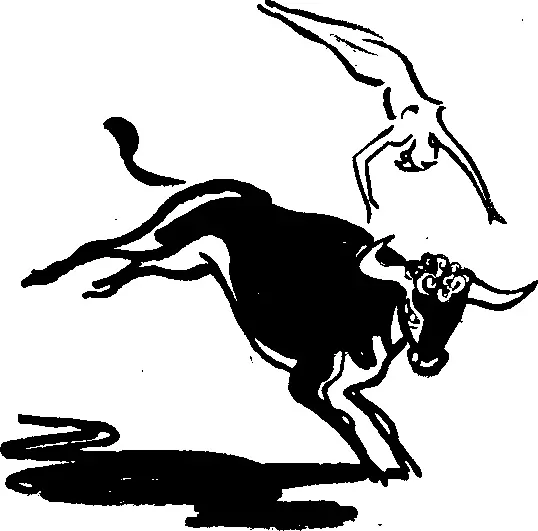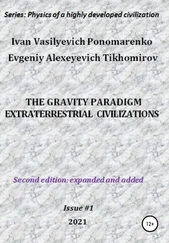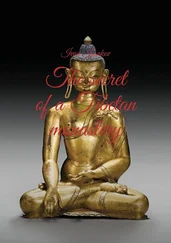The moon sank slowly behind the trees. A heavy curtain of darkness fell over the glade.
The dances were over. Thessa and her friends sang the Hirasiona — the song of the swallow and spring — a song that Pandion loved to hear. At last the young people made their way in pairs to their houses. Pandion and Thessa were the last, deliberately slowing down to be alone. No sooner had they reached the ridge of the hill overlooking the village than Thessa shuddered, stopped and pressed close to Pandion.
The sheer wall of white limestone behind the vine-yards reflected the moon like a mirror. A transparent curtain of silver light veiled the houses, the littoral and the dark sea, a light that was permeated with deadly charm and silent sorrow.
“I’m terribly afraid, Pandion,” whispered Thessa. “Oh, how great is the power of Hecate, goddess of the moonlight, and you are going to the country where she rules…”
Pandion, too, caught Thessa’s excitement.
“No, no, Thessa, Hecate rules in Caria, but I am not going there, my way lies towards Crete,” exclaimed the youth, urging the girl towards their house…
Pandion awoke from his dream. It was time to eat and continue his journey. He made sacrifice to the God of the Sea, walked down to the beach, measured his shadow to judge the time, found that it measured nineteen feet and realized that he would have to hurry to reach the ship before evening.
Rounding the island Pandion saw a white post standing in the: sea — the sign of a harbour — and redoubled his efforts at the oars.

I he wind raised clouds of coarse sand as it howled mournfully through the dry bushes. Like a road built by some giants unknown, the ridge ran away eastwards, curving round a broad, green valley. On the seaward side the mountains descended to the water’s edge in a gentle, flower-covered slope, which from a distance gave it the appearance of a huge piece of gold rising out of the shimmering blue of the sea.
Pandion increased his pace. Today he was more homesick than ever for Oeniadae. He remembered that he had been advised not to penetrate into that distant, mountain-encircled part of Crete where the descendants of the Sea People were unkind to strangers.
Pandion had need to hurry. He had already spent five months in various parts of the island that stretched in a chain of mountains rising out of the sea. The young sculptor had seen many strange and marvellous things that the ancients had left in the empty temples and almost unpopulated cities.
He had spent many days in the gigantic Palace of Cnossus, the older parts of which went back to times beyond the memory of man. As he wandered up and down the countless staircases of the palace the youth saw, for the first time in his life, columns of red stone narrowing at the base and he marvelled at the cornices brightly painted with black and white rectangles or decorated with black and light blue whorls resembling a series of moving waves.
Brightly-coloured pictures covered the walls. Pandion gazed in breathless amazement at the pictures of the sacred games with the bulls, the processions of women bearing vessels in their arms, girls dancing within an enclosure outside which stood a crowd of men, unknown, sinuous” animals amongst the mountains and strange plants. Pandion thought the outlines of the figures unnatural and the plants rose up on exceedingly long and almost leafless stems. At the same time he realized that the artists of ancient days had deliberately distorted natural proportions in an effort to express some idea, but the idea was incomprehensible to the youth who had grown up at liberty in the lap of nature, beautiful even when stern.
In Cnossus, Tylissos and Aelira, and in the mysterious ruins of the ancient harbour of the “slate city” whose name had long been forgotten, all the houses were built of slabs of smooth, grey, stratified stone instead of the usual blocks. Pandion saw many female statuettes of ivory, bronze and faience, marvellous vessels and dishes and cups made of an amalgam of gold and silver and covered with the most delicate drawings.
These works of art astounded the young Hellene but they were as little understood by him as the mysterious inscriptions in the forgotten symbols of a dead language that he met amongst the ruins. The magnificent craftsmanship to be seen in the tiniest detail of any of these things did not satisfy Pandion; he wanted something more — he did not want to limit himself to abstract depiction; he strove for an incarnation of the living beauty of the human body he worshipped.
Quite unexpectedly Pandion discovered realistic images of people and animals in the works of art brought from distant Aigyptos.
The people of Cnossus, Tylissos and Aelira, who showed Pandion these things, told him that many more of them were still to be found in the vicinity of Phaestos, where the descendants of the Sea People still lived. Despite warnings of the danger involved, Pandion decided to penetrate the ring of mountains on the southern coast of Crete.
In a few more days he would have seen everything there was to see and would sail back home to Thessa. Pandion was now certain of his own ability. Much as he would have liked to learn from the craftsmen of Aigyptos his love for his own country and for Thessa was stronger, and the oath he had sworn to the girl held him tightly bound.
How wonderful it would be to sail home with the last ship in autumn, to look into the bright, blue eyes of his beloved, to see the reticent joy of Agenor, the teacher who had replaced his father and grandfather.
Pandion screwed up his eyes and gazed out at the boundless expanse of the sea. No, it was not for him; there, ahead of him, lay distant strange lands, Aigyptos, but his own native land was behind him, beyond the mountain ridge. And he was still moving onwards, away from his own country. He had to see the ancient temples of Phaestos of which he had heard so much in the coastal towns. With a sigh he increased his pace until he was almost running. A spur led down from the mountain in broad terraces covered with boulders like tufts of grass, with dark patches of bush between them. Amongst the trees at the foot of the slope he could see the indistinct outlines of the ruins of a huge building, walls half collapsed, the remains of arches and gates still standing in their framework of black and white columns. Silence reigned in the ruins and the curves of the broken walls stretched out towards Pandion like giant hands ready to seize their victim. The surfaces of the walls were furrowed with fresh cracks, the aftermath of a recent earthquake.
The young sculptor trod quietly amongst the ruins, trying not to disturb the silence there, peering into dark corners beneath columns that still stood in their places. Pandion turned a projecting corner and found himself in a rectangular, roofless hall the walls of which were covered with the well-known brightly-coloured frescoes. As ha looked at the black and brown figures that followed each other in quick succession, figures of men carrying shields, swords and bows amongst strange animals and ships, Pandion remembered the tales of his grandfather and realized that before him was a picture of a band of soldiers on a raid into the land of the blacks, situated, according to ancient legend, on the very borders of Oicumene.
Pandion was astounded at this evidence of the tremendous journeys made by the ancients and gazed long at the frescoes until, turning away from them at last, he saw a marble cube standing in the middle of the hall. The cube was ornamented with blue rosettes and whorls of glass and at its base lay heaps of freshly picked flowers.
Читать дальше













